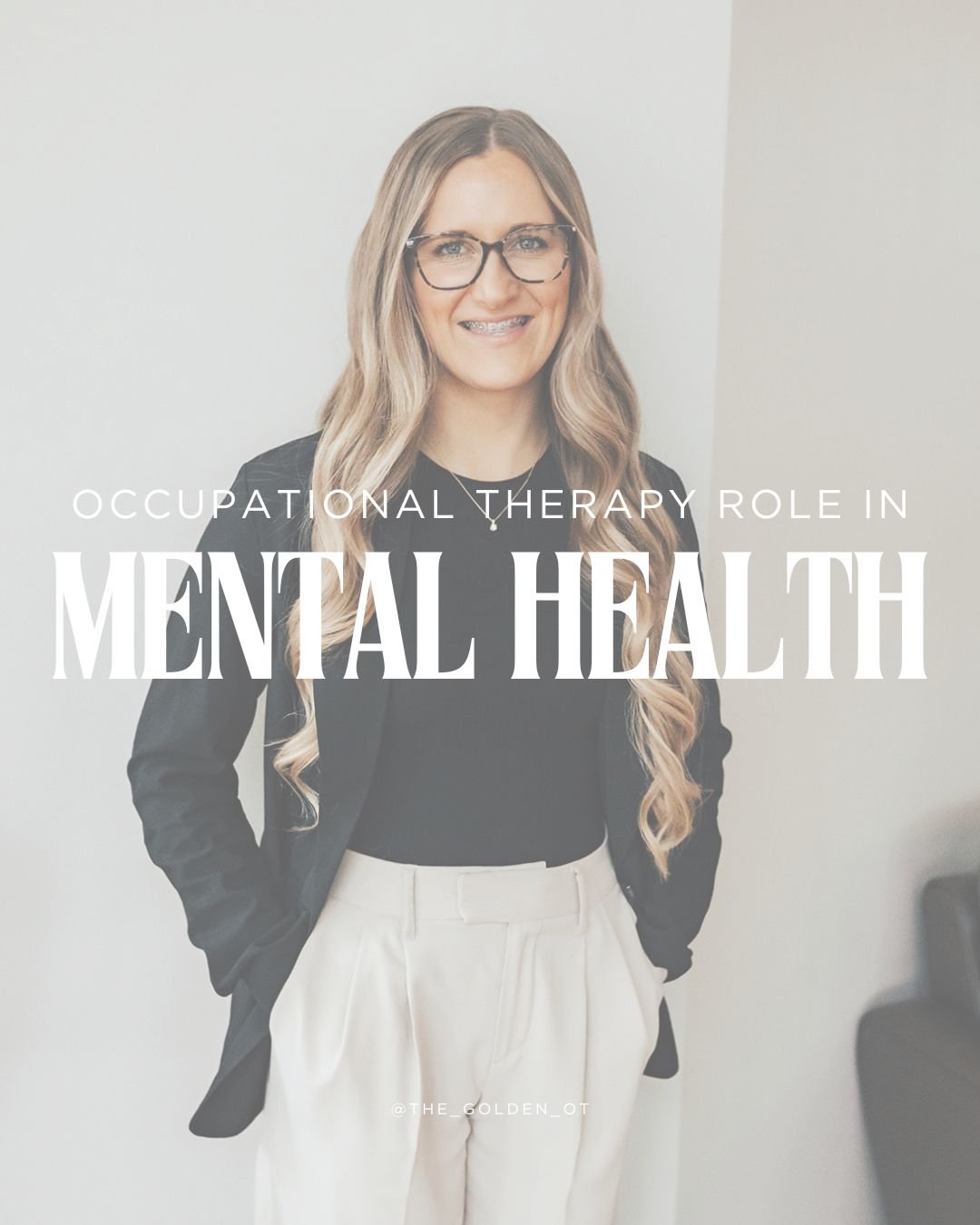OT Role in Mental Health
Let’s talk the role of OT in mental health.
The role can vary depending on the setting whether it’s a mental health setting specifically or everyday practice.
Mental illness impacts every aspect of a person’s life, including their ability to participate fully in social, recreational, and employment activities.
Effective mental health treatment takes a multidimensional view of a person’s life, including work, school, recreation, hobbies, and human interaction.
Activities play a crucial role in shaping our mental health, influencing it in profound ways. When individuals engage in activities that they find meaningful they often experience life more fully. That is where OTs come in to play!
Cognitive restructuring techniques
These therapeutic techniques help people recognize, challenge, and change negative thinking patterns that can become limiting and self-defeating.
Problem-solving skills training
This intervention gives patients the tools they need to identify problems and find ways to solve or adapt to them.
Activity exposure
OTs can help the patient build confidence by giving them a safe, controlled way to simulate the environment and activity that they need or want to return to.
Supportive structure
Occupational therapists often help patients to create daily routines and set specific goals that help them progress along a path toward the desired lifestyle.
Motivational interviewing
Through empathetic, person-centred counselling, occupational therapists explore and resolve uncertainty, build personal motivation, and develop a plan for behavioural change.

